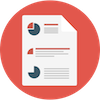Check My Credit Score
Knowing your credit score before you apply is one of the most important pieces in any credit application. Checking your credit score can help you apply to the right institution, get the best rate, lower your payment and assist in speeding up the approval process by educating you on which product to choose. We strongly advise you to identify your credit score before starting your application. If you already know your score than that is great too. You are one step ahead in the process and closer to obtaining your loan. We are here to assist you in all aspects of the loan process and truly believe that understanding your credit and your score is important when presenting yourself to possible personal loan lenders. When you know your score, you are sure to make the right decision.

Experian CreditWorks®
We have partnered with an industry leader to help you identify your score.
When you apply for a new credit card, loan or extension of credit, the potential lender will most likely check your credit report before making a decision. You should too. It is important to know your score the day of application and we also advise that you check your credit report several weeks or even months prior to making a large credit purchase.
With your trial in Experian CreditWorks ®, you get the tools and support to help you be better at credit.
Everyday Access to your Experian Credit Report & FICO® Score
Score Factors that show what’s positively or negatively impacting your FICO® Score
Includes Experian Credit Report & FICO® Score
Toll-free support available 7 days a week

ScoreSense®
Checking your own credit will NOT lower your Score
3 Credit Scores & Reports
Daily Credit Monitoring & Alerts

Experian Boost®
Experian Boost® is completely free and can instantly raise your credit scores
Results will vary, see website for details.
Get credit for your phone and utility bills
New credit scores take effect immediately
Includes Experian Credit Report & FICO® Score
Toll-free support available 7 days a week
Check My Credit Score FAQs
What is a credit score?
In simple terms, a credit score is a number that represents you and your ability to pay back loans to lending institutions like money lenders, credit card companies and banks. The higher your credit score, the more likely it is that you’ll be able to receive a loan when you ask for one. And conversely, the lower it is, like those with a 450 credit score, the more difficult it will be for you to convince potential creditors that you’ll be willing and able to pay back any funds they may lend you.
Your credit score is calculated by credit bureaus across numerous factors – like your current income, previous financial history, existing debt load, and even how the economy is doing.
Why do I need a good credit score?
If you’re planning to finance any large purchase, it’s a sure bet that the potential lender will take a close look at your credit score.
Your credit score can also determine the terms of any loan that you take out – including unsecured loans online – so if you have a lower credit score, you may pay a higher interest rate than people with higher credit scores.
How can I check my credit score?
Of course, different credit bureaus use their own algorithms to determine credit scores – so your credit score free or not, could vary depending on which bureau is being used.
How often should I check my credit score?
If you’ve faced significant financial hurdles, you may want to work with a credit repair service, who will negotiate with creditors and address any issues resulting from identity theft on your behalf.
Why is checking my credit score important?
What is a good credit score?
What can hurt my credit score?
Everyone’s financial situation and history are different, but here are some common items that can impact credit scores:
- how much credit you’re already holding
- existing payment history, including any late payments
- overall debt
- bankruptcy and tax liens
- numerous applications for new lines of credit
What can help my credit score?
A golden rule of good credit is to always, always pay your bills on time. (If possible, set up automatic payments on all your accounts so you never fall behind.) Monitor how much credit you have access to versus how much debt you are carrying. This is called the ‘Credit Utilization Ratio’, and ideally, it should be below 30%.
If your ratio isn’t yet at 30%, there’s a couple of things you can do to get closer to that number and, in time, improve your credit score. Commit to paying off your credit card debt. As much as you can, you want your credit card balances to be as low as possible, or at zero, ideally. Although it seems counterintuitive, don’t close your credit accounts once you’ve reduced the balance to zero – that will reduce the amount of credit you have access to, and impact your ratio. Keep the account open, even if you don’t plan on using anymore. (And if it’s too tempting, cut up the card!)
What is credit monitoring and do I need it?
I have bad credit, how do I fix my credit score?
Loans Now is your best source for unsecured loans online.
Disclosure: Unsecured Personal Loans Now / Angel Oak Solutions my have a relationship with the above listed. Please see our Advertising Disclosure

Check Your Credit Score

How We Work

